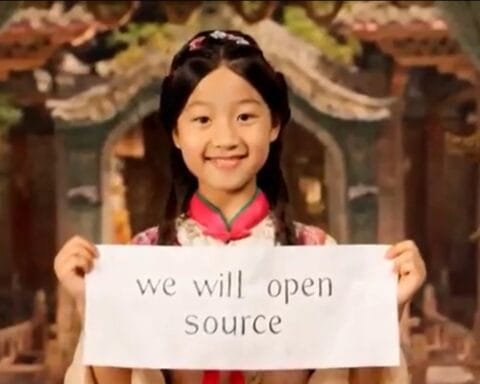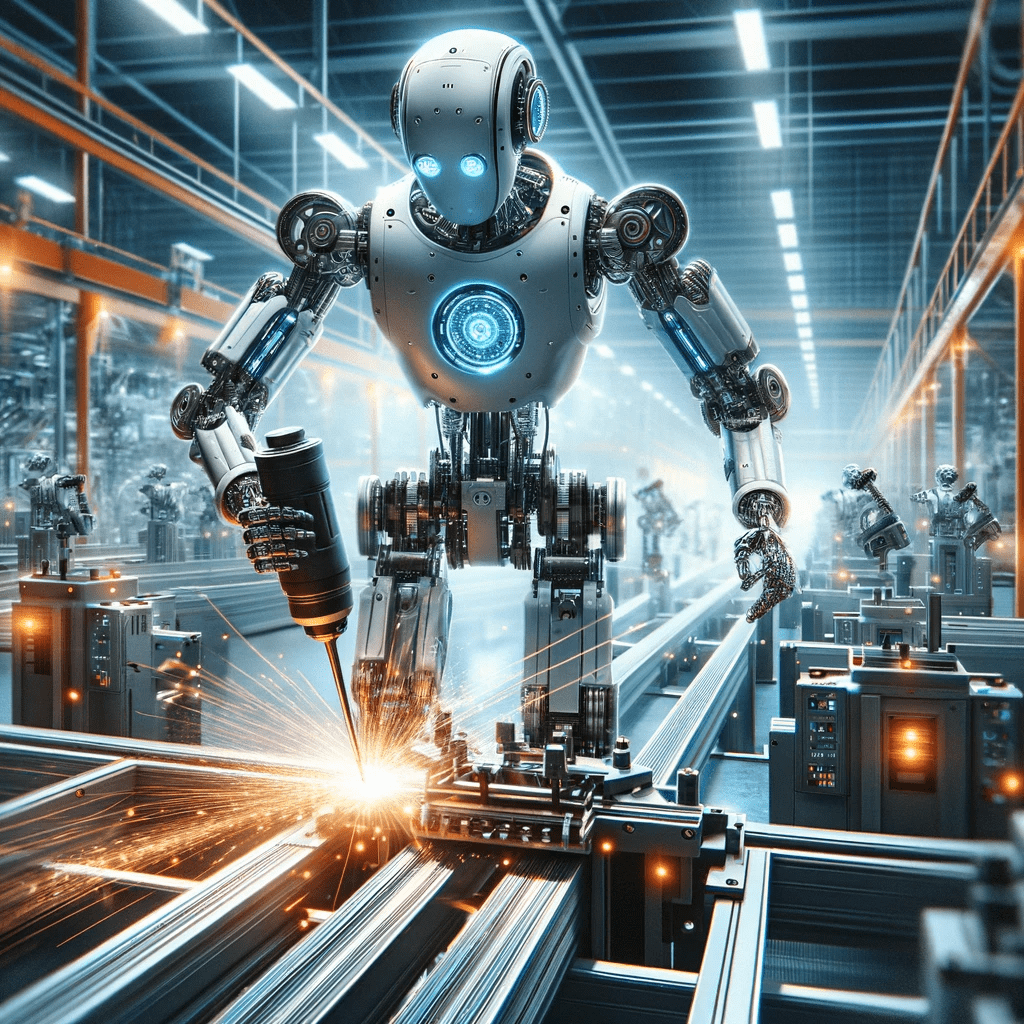Last Updated on January 24, 2024 6:58 pm by Laszlo Szabo / NowadAIs | Published on January 24, 2024 by Laszlo Szabo / NowadAIs
North Korea AI Ambitions: Cloaked Titan Awakens in the Realm of Artificial Intelligence – Key Notes
- Strategic Investment in AI/ML: North Korea emphasizes AI/ML to cultivate an “informatized/digitized economy,” integrating these technologies across various sectors.
- Military Applications: The development of wargaming simulations using reinforcement learning underlines North Korea’s potential military applications of AI/ML.
- International Concerns: The global community is wary of North Korea’s AI advancements due to potential sanctions breaches and the dual-use nature of the technology.
- Transfer Learning & Cloud Computing: These technologies pose challenges in monitoring and controlling intangible technology transfers, potentially aiding North Korea’s military capabilities.
- Policy Recommendations: Proactive engagement with cloud service providers and academic associations is crucial to mitigate risks associated with North Korea’s AI advancements.
North Korea’s AI Advances: Strategic Investment and Diverse Applications in the Era of Artificial Intelligence
North Korea’s journey into the realm of Artificial Intelligence (AI) and Machine Learning (ML) has been nothing short of strategic and multifaceted. Over the past three decades, the nation has meticulously laid the groundwork for a transformative digital economy, leveraging AI/ML as pivotal tools in this grand scheme.
The country’s dedication to these technologies is not just a narrative of advancement but a testament to its aspirations in the global digital landscape.
Now we delve into the multifaceted realm of North Korea AI, highlighting the nation’s strategic approach to harnessing Artificial Intelligence (AI) and Machine Learning (ML) across various sectors, including military, economic, and civilian domains – drawing from comprehensive insights provided by 38north.
Strategic Investment in AI/ML: A Pillar of the Digital Economy
North Korea’s commitment to AI/ML is deeply entrenched in its national agenda, with a clear strategy to cultivate an “informatized/digitized economy.” This strategic inclination is enshrined in the nation’s Socialist Constitution, specifically through the amendment of Article 26 in April 2019, signaling a profound recognition of AI’s pivotal role in the modern economy.
The state’s portrayal of data as a commodity surpassing the value of traditional resources like gold and oil further accentuates its belief in the transformative potential of AI technologies. Such a vision is not merely about adopting new technologies but reshaping the economic fabric to thrive in the AI era.
Establishment of Dedicated Institutes: Centralizing AI/ML Efforts

In line with its strategic focus, North Korea established the Artificial Intelligence Research Institute under the Bureau of the Information Industry Guidance in 2013. This move was more than an institutional arrangement; it was a statement of intent, placing AI/ML at the heart of the nation’s digital transformation journey.
The elevation of the Bureau’s authority to a ministry level in 2021 underscores a clear directive – to drive the informatization and digitalization agenda forward, overcoming internal bureaucratic hurdles that once impeded progress.
Academic Involvement: Cultivating a Knowledge Base
The academic landscape in North Korea has not been insulated from the AI wave. Premier institutions like Kim Il Sung University have been at the forefront, embracing AI/ML with open arms.
The establishment of the High-Technology Development Center, later renamed the Center for Advanced Technology Research and Development (CATRAD), marks a significant stride in fostering innovation.
Programs focusing on advanced technologies such as voice and text recognition, simultaneous interpretation, and big data analysis signify a broader vision – to nurture a homegrown talent pool adept in the latest technological paradigms.
Commercial Applications: Bringing AI to the People
The commercial sector in North Korea mirrors the nation’s overall enthusiasm for AI. Companies like the Mangyongdae Information Technology Corporation are not just adopting AI/ML technologies; they are innovating, crafting products that are a testament to the nation’s technical prowess.
The launch of mobile phones featuring advanced technologies based on deep neural networks (DNN) is a clear indicator of the commercial viability and consumer-centric application of AI/ML in the country. These endeavors reflect a dual focus – pursuing technological excellence while catering to the practical needs and aspirations of the populace.
Civilian Applications – Nuclear Safety: AI for a Safer Tomorrow
Perhaps the most compelling illustration of North Korea’s AI/ML applications lies in its civilian domain, particularly in nuclear safety. The study titled “PWR core loading pattern optimization with adaptive genetic algorithm” is not just an academic endeavor; it’s a foray into the realm of practical, impactful applications.
The use of genetic algorithms (GA) for optimizing fuel loading patterns in pressurized water reactors underscores a meticulous approach to leveraging AI for societal benefit. It’s about harnessing the power of AI/ML to enhance operational efficiency and safety – a clear testament to the potential of generative AI in addressing intricate, high-stakes challenges.
Military Applications – Wargaming/Battle Simulation: Reinforcement Learning in the Theater of War
North Korea’s development of wargaming simulations, utilizing a machine learning method known as reinforcement learning (RL), represents a significant leap in military strategy and operational planning.
In this context, an ‘agent’—which could be a virtual representation of a military unit or weapon system—is trained to maximize rewards in a simulated environment through trial and error, essentially learning to make strategic decisions that would result in victory or other favorable outcomes in real-world scenarios.
This advanced approach to military training and strategy, as indicated by a 2022 study published in the North Korean journal Information Science, not only demonstrates the country’s commitment to leveraging technology for defense purposes but also raises concerns about the potential applications of such simulations in actual conflict scenarios.
Sanctions and Export Control Implications: Navigating the Complex Web of International Regulations
The international community’s apprehension towards North Korea’s advancements in AI/ML, particularly in the military domain, is compounded by the potential breach of sanctions and the dual-use nature of these technologies. Entities engaging in collaborations with North Korean firms, such as the Yalu River Technology Development Company, face the risk of being implicated in sanctions violations and being listed on sanction lists like the US Entity List.
The significant risk that any international cooperation on AI with North Korean entities could lead not only to a breach of sanctions but also to repercussions in the form of restricted access to US technologies and products, thereby adding a complex layer of geopolitical tension to the advancement of AI technology.
Risks of Technology Transfer: The Thin Line Between Collaboration and Proliferation
North Korea’s active collaboration with foreign scholars and entities, particularly in fields related to AI and military applications, raises alarms over the potential for technology transfer that could inadvertently enhance the country’s military capabilities.
The involvement of North Korean researchers with entities and individuals under US financial restrictions, as evidenced by their collaboration with Chinese scholars associated with entities on the US trade denylist, elucidates the intricate network of relationships that could facilitate the transfer of sensitive technologies and knowledge, thereby magnifying the risks associated with such collaborations.
Transfer Learning and Cloud Computing: The Veiled Pathways of Technology Proliferation
The concept of transfer learning and the utilization of cloud computing services offer a gateway for bypassing traditional hardware requirements and sanctions, thereby highlighting the need for stringent monitoring and control of these intangible technology transfers.
The potential for transfer learning to fine-tune pre-trained models for specific military applications, coupled with the expansive capabilities of cloud computing services that provide robust AI/ML development environments, underscores the intricate challenges posed by the intangible transfer of technology (ITT).
This necessitates a vigilant approach to monitoring and controlling the proliferation of these technologies, ensuring that advancements in AI do not inadvertently contribute to the enhancement of military capabilities in contravention of international sanctions and export controls.
Policy Recommendations: Proactive Engagement and Stringent Monitoring
In light of the multifaceted challenges posed by North Korea’s advancements in AI/ML, it is imperative for national authorities to engage proactively with cloud computing service providers and academic/professional associations.
This engagement should aim to raise awareness of potential threats, enhance screening procedures, and devise strategies to prevent the inadvertent support of undisclosed military applications.
By fostering a collaborative and vigilant approach, stakeholders can navigate the complex landscape of AI/ML advancements, ensuring that the immense potential of these technologies is harnessed for constructive and peaceful purposes, in alignment with international norms and regulations.
Conclusion:
In conclusion, the intricate narrative of North Korea AI unraveled in this article, presents a nuanced understanding of how AI/ML is woven into the fabric of North Korea’s strategic initiatives, reflecting its ambitions and the ensuing global implications.
FAQ Section:
- What is the focus of North Korea’s AI / ML investment?
North Korea focuses on AI/ML to develop an informatized/digitized economy and integrate these technologies across military, economic, and civilian sectors. - How does North Korea use AI in military applications?
North Korea is developing wargaming simulations using reinforcement learning to potentially enhance military strategy and operational planning. - What are the international concerns regarding North Korea’s AI advancements?
The international community is concerned about potential breaches of sanctions, the dual-use nature of AI technology, and the risk of technology transfer that could bolster North Korea’s military capabilities. - How does transfer learning and cloud computing affect North Korea’s AI capabilities?
Transfer learning and cloud computing can bypass traditional hardware limitations and sanctions, highlighting the need for stringent monitoring of technology transfers. - What policy recommendations are suggested to address the risks associated with North Korea’s AI advancements?
It’s recommended that national authorities proactively engage with cloud service providers and academic associations to raise awareness, enhance screening, and prevent support for undisclosed military applications.










